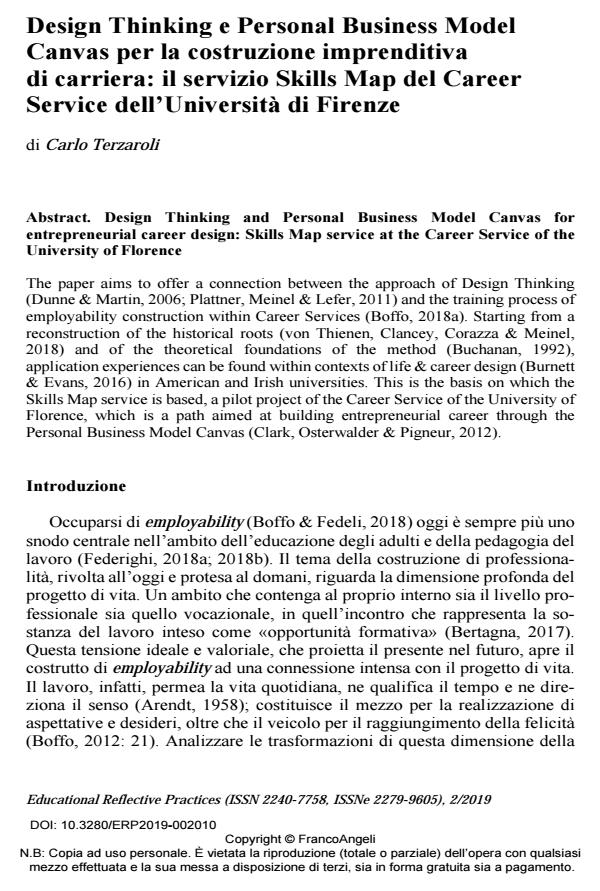Design Thinking e Personal Business Model Canvas per la costruzione imprenditiva di carriera: il servizio Skills Map del Career Service dell’Università di Firenze
Titolo Rivista EDUCATIONAL REFLECTIVE PRACTICES
Autori/Curatori Carlo Terzaroli
Anno di pubblicazione 2020 Fascicolo 2019/2
Lingua Italiano Numero pagine 33 P. 177-209 Dimensione file 672 KB
DOI 10.3280/ERP2019-002010
Il DOI è il codice a barre della proprietà intellettuale: per saperne di più
clicca qui
Qui sotto puoi vedere in anteprima la prima pagina di questo articolo.
Se questo articolo ti interessa, lo puoi acquistare (e scaricare in formato pdf) seguendo le facili indicazioni per acquistare il download credit. Acquista Download Credits per scaricare questo Articolo in formato PDF

FrancoAngeli è membro della Publishers International Linking Association, Inc (PILA)associazione indipendente e non profit per facilitare (attraverso i servizi tecnologici implementati da CrossRef.org) l’accesso degli studiosi ai contenuti digitali nelle pubblicazioni professionali e scientifiche
The paper aims to offer a connection between the approach of Design Thinking (Dunne & Martin, 2006; Plattner, Meinel & Lefer, 2011) and the training process of employability construction within Career Services (Boffo, 2018a). Starting from a reconstruction of the historical roots (von Thienen, Clancey, Corazza & Meinel, 2018) and of the theoretical foundations of the method (Buchanan, 1992), application experiences can be found within contexts of life & career design (Burnett & Evans, 2016) in American and Irish universities. This is the basis on which the Skills Map service is based, a pilot project of the Career Service of the University of Florence, which is a path aimed at building entrepreneurial career through the Personal Business Model Canvas (Clark, Osterwalder & Pigneur, 2012).
Carlo Terzaroli, Design Thinking e Personal Business Model Canvas per la costruzione imprenditiva di carriera: il servizio Skills Map del Career Service dell’Università di Firenze in "EDUCATIONAL REFLECTIVE PRACTICES" 2/2019, pp 177-209, DOI: 10.3280/ERP2019-002010